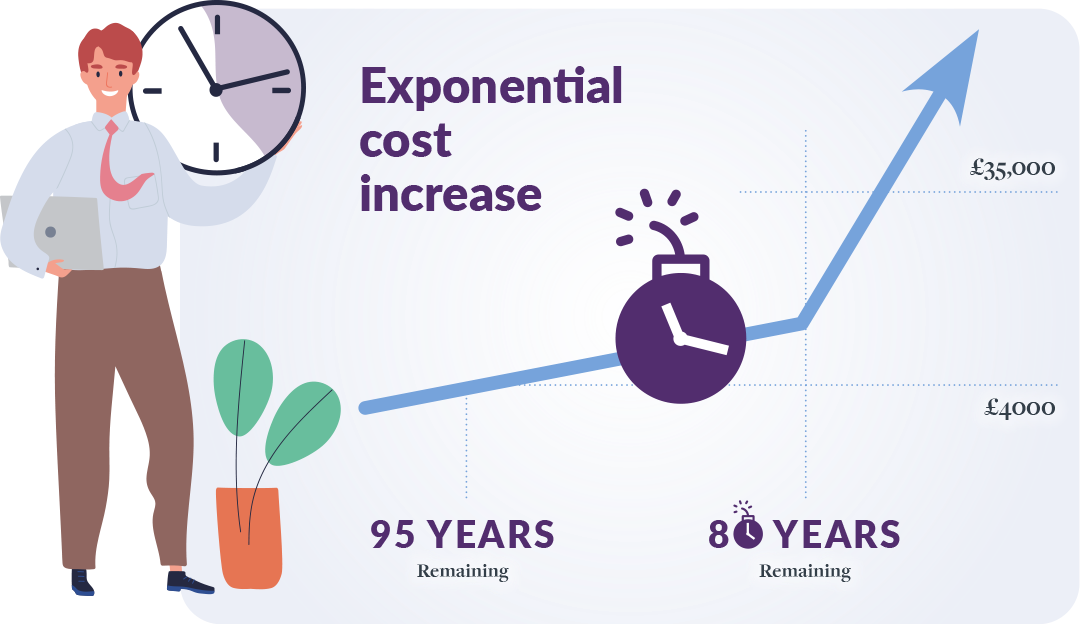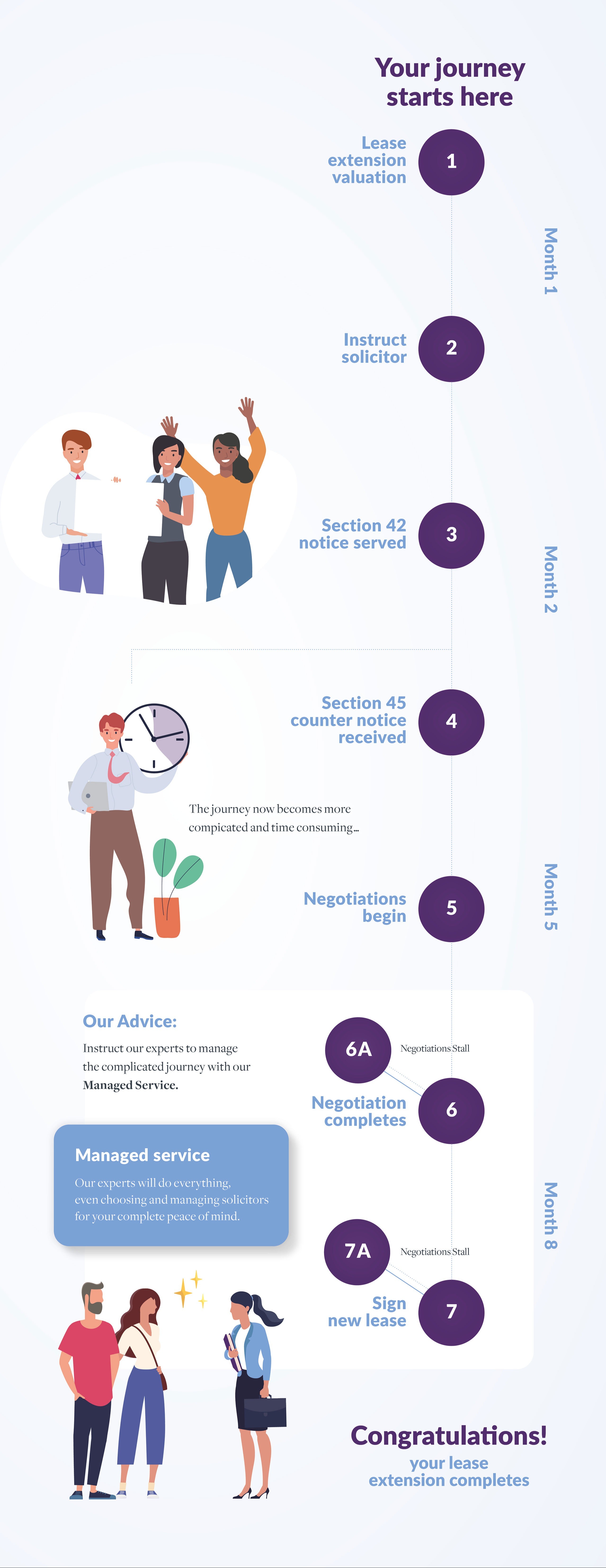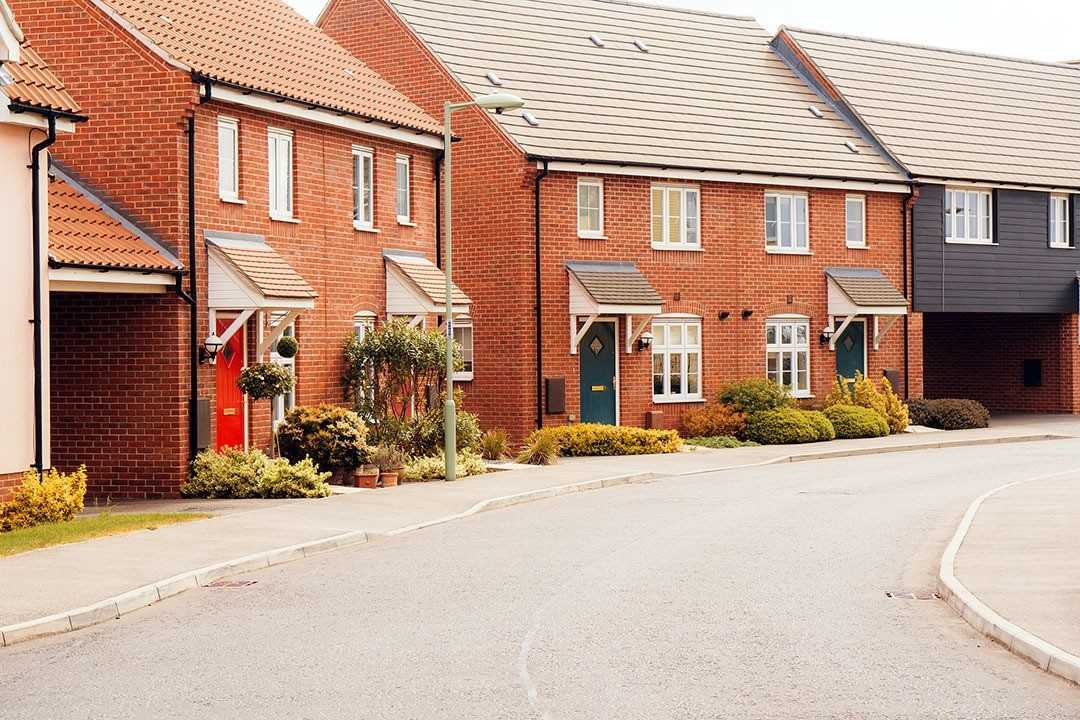The first step is finding out how much a lease extension is likely to cost, so that you can be prepared financially before starting the legal process.
If you decide to instruct our team of honest, approachable experts, we will prepare you with a comprehensive report, which includes calculations detailing the likely price payable for a lease extension, together with an offer price figure, which the solicitors will need to serve a Section 42 Notice in order to start the legal process.
Once you have been provided with the report, and should you decide to proceed with a lease extension, we will refer the case onto a specialist solicitor who will use the report to serve the Section 42 Notice on your freeholder, which will ‘freeze’ your lease length and will prevent the lease extension price from getting more expensive for the duration of the process.
Once the Notice is served, the freeholder will have a two month legal deadline to respond with a Section 45 Counter Notice, at which point we would have 6 months to negotiate the lowest possible price for your lease extension, while the solicitor will negotiate the terms of the new lease.
It is important to note the whole process can take 6-8 months from when the Section 42 Notice is served by the solicitor, and the majority of the money will be payable at the end of the process.
This will include any remaining valuation and legal fees, as well as the freeholder’s costs, which you are obliged to pay under the statutory process.
Hurry! Save money on your lease before it gets too expensive
Lease extension first step
The first step is finding out how much a lease extension is likely to cost, so that you can be prepared financially before starting the legal process.
You can do that here with our FREE Lease Extension Calculator tool.
Your lease is a depreciating asset – It is imperative that you extend your lease before it falls below 80 years, otherwise the cost to do so will increase exponentially.
Moreover, the underlying value of the property will begin to depreciate, and we know from our experience working with leaseholders that it is becoming increasingly difficult to obtain a mortgage when a lease has less than 85 years remaining or onerous ground rent terms.

Your legal rights
If you have owned your property for over two years (from the date of registration at the Land Registry), you are legally entitled to extend your lease by an additional 90 years and reduce your annual ground rent to a peppercorn (i.e. nil). This transaction will protect the underlying value of your property.
If you’re about to embark on the lease extension Journey, here’s a quick infographic the outlines the steps involved. And, if you’re unsure about how to extend your lease or the costs involved, please keep on reading…

Do I qualify for a lease extension?
Providing you have owned your flat for a minimum of two years from the date of registration at the Land Registry, it is your legal right to extend your lease by an additional 90 years and reduce your ground rent to a ‘peppercorn’ (nil). If you are in the process of selling your property, a lease extension application can be transferred to the buyer before or after exchange, which enables the buyer to continue the process without having to wait the statutory two years that is required.
What is the Lease Extension process?
Step 1: lease extension valuation
The first step is to have a lease extension valuation undertaken in order to ascertain the likely price payable for a lease extension. A valuer will advise on whether desktop valuation can be carried out or whether an inspection is more appropriate. The valuation will detail a likely price payable for a lease extension to prepare you financially. This is usually illustrated as a range of the best- and worst-case scenario. An opening offer will also be included within the report, as a solicitor would use this to serve a Section 42 Notice on the freeholder.
Step 2: negotiations
Once you have been provided with the report and should you decide to proceed with the lease extension, you would need to instruct your solicitor to serve a Section 42 Notice. Once served, the freeholder will have two months legal deadline to respond with a Section 45 Counter Notice. At which point, your instructed valuer will have 6 months to negotiate the lease extension price, while your solicitor negotiates the terms of the new lease document.
Once both the lease extension price and lease terms are agreed, there would be a further 2-3 months to complete the lease extension and pay any remaining costs. This would include any outstanding legal and valuation fees, as well as the freeholder’s costs.
Please note the statutory process is quite long and can take 6-8 months to complete, from when the Section 42 Notice is served on the freeholder.
What are the benefits of a statutory lease extension?
Although the legal process can become protracted, there are legal obligations the freeholder must abide by which protect the leaseholder. For instance, when you serve the Notice/application, the freeholder must respond within the two-month legal deadline. Secondly, once the Section 42 Notice is served the lease is ‘frozen’ for the duration of the process preventing the lease extension claim from getting more costly as time lapses.
What costs must be considered?
You will need to instruct a valuer and a solicitor to act on your behalf. You are also liable for the freeholder’s valuation and legal fees (Section 60 costs). However, the freeholder’s costs must be ‘reasonable’ and can be contested by your solicitor should they be onerous. Here is a breakdown of the likely fees payable:
- Lease Extension Valuation (Valuer)
- Negotiations (Valuer)
- Notice Serving (Solicitor)
- Completion (Solicitor)
- Freeholder’s recoverable costs
- Valuation and legal fees (excluding their negotiation costs)
An unlikely scenario is that if during the negotiation of the lease extension price your valuer cannot agree a reasonable figure, the matter can be referred to the First-Tier Tribunal and in some cases the Upper Tribunal. At this point it is usually recommended a barrister is instructed as central representation. Additional valuation and legal fees may be payable to prepare the necessary written submissions, and to attend Tribunal hearings and provide evidence. It is important to note however, at this point the freeholder is liable for their own fees.
What are some of the reasons I should consider extending my lease?
There are many reasons why a person needs to consider extending their lease. Here are some of the more common ones listed below:
- The critical 80-year mark – Once a lease falls to below 80 years unexpired an additional sum is payable called ‘marriage value’, which increases the lease extension premium exponentially.
- Marketability/saleability – A leaseholder with a lease that is approaching or below 80 years may find it difficult to sell their property. One of the main reasons for this is, there are some mortgage lenders who have a policy not to lend against anything with less than 80 years. There are also lenders who do not lend on anything with less than 85 years. A statutory lease extension protects the underlying value of your property by adding an additional 90 years to the lease.
- Onerous ground rents – Some leaseholders are finding it very difficult to sell their properties due to what are considered onerous ground rents. This is usually defined as any ground rent that exceeds 0.1% of the underlying property value. In addition to this, leases with ground rents of £250 or more a year (outside of London) or £1,000 or more a year within London are now finding themselves subject to what is called an Assured Shorthold Tenancy, which makes it easier for freeholder to terminate the lease if ground rent goes unpaid. In such cases a judge cannot has no option but to grant forfeiture. As a result of this many mortgages are refusing to lend against such properties due to the risk.
Extending your lease is a complex journey
We can help – speak with our experts. We have three product offerings for you…

Entry quote
Lease extension and valuation quote from our experts for you to go alone.
Standard offer
Our experts will do everything and let you choose your preferred solicitor.
Managed service
Complete peace of mind. Our experts will do everything, choose and manage solicitors for you.


